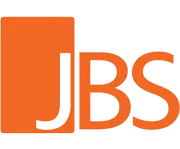Introduction to ERP Software
Enterprise Resource Planning (ERP) software is a robust business management solution designed to optimize organizational efficiency and decision-making. On the other hand, ERP systems are powerful software tools designed to optimize and automate business operations, making them more efficient and effective. This software unifies data and processes across all departments and functions, providing a comprehensive overview of the business.
By consolidating data into a single system, ERP eliminates redundant data entry and minimizes errors, leading to more accurate and complete data. It also automates routine tasks, freeing up time for employees to focus on strategic initiatives while promoting consistency and efficiency.
In addition to improving internal processes, ERP software also provides real-time visibility into financial data, allowing for informed budgeting, forecasting, and cash flow management. By identifying areas where costs can be reduced and resources can be optimized, businesses can operate more effectively and make better use of their resources.
Benefits of ERP Software for Businesses
ERP software can help businesses in various ways. Here are a few critical advantages of utilizing ERP programming:
1. Centralised Data Storage:
ERP software consolidates data from various departments and functions into a single database, providing a centralized location for data storage. Here, we can relate to the fact that data is stored not only on desktop computers but also on multiple devices such as laptops, iPads, iPods, and cell phones. As per IT reports, there are 175 zetta bytes of information expected by 2025, and that implies that server farms will keep on assuming an essential part in the capacity, and the executives of data.
This means that all employees have access to the same data, enabling them to make better-informed decisions.
2. Streamlined Processes:
ERP software automates routine tasks, freeing up employees to focus on more strategic tasks. It also standardized processes for greater consistency and efficiency, reducing the need for manual data entry and report generation.
3. Improved Reporting:
ERP software provides real-time reporting and analytics, enabling businesses to make better-informed decisions about budgeting, forecasting, and cash flow management. This means that businesses can quickly identify areas where costs can be cut or spending can be optimized.
4. Better customer service:
ERP software provides a 360-degree view of customer data, enabling businesses to provide better customer service and support. It also enables businesses to quickly respond to customer inquiries and resolve issues.
How to Use ERP Software
ERP software is designed to be customizable, so businesses can tailor it to their specific needs. This means that companies can choose from the top 10 modules and features to create a solution that meets their unique requirements.
Some of the most popular ERP modules include finance, accounting, inventory management, human resources, supply chain management, and customer relationship management.
Each module offers specific features to help streamline processes and improve efficiency. For instance, the finance module provides tools for budgeting, forecasting, and cash management, while the inventory management module enables businesses to track stock levels and automate replenishment.
By selecting the appropriate modules and features, businesses can create a customized ERP solution that addresses their specific pain points and helps them achieve their goals. Here are some ways businesses can use ERP software:
1. Financial Management:
ERP software can help businesses manage their finances more effectively by providing real-time visibility into financial data. This enables businesses to make better-informed decisions about budgeting, forecasting, and cash flow management.
2. Supply chain management:
ERP software can help businesses manage their supply chains more effectively by providing real-time data on inventory levels, production schedules, and supplier performance. This enables businesses to make better-informed decisions about sourcing, purchasing, and production.
3. Human Resources:
ERP software can help businesses manage their human resources more effectively by providing real-time data on employee performance, attendance, and payroll. This enables businesses to make better-informed decisions about hiring, training, and compensation.
Which Companies Are More Likely to Use ERP Software?
ERP software is particularly useful for companies that have complex operations and require a high degree of coordination across departments and functions. According to LinkedIn, as a business, we should be aware of these 21 ERP software statistics.
Here are some types of companies that are more likely to use ERP software:
1. Manufacturing Companies:
Manufacturing companies often have complex supply chains and require a high degree of coordination across departments and functions. ERP software can help these companies manage their production schedules, inventory levels, and supplier performance more effectively.
2. Retail Companies:
Retail companies often have large volumes of data to manage, including customer data, inventory data, and sales data. ERP software can help these companies manage their data more effectively, providing real-time insights into sales trends, inventory levels, and customer behavior.
3. Service Companies:
Service companies often have complex billing and invoicing processes, as well as multiple projects and contracts to manage. ERP software can help these companies manage their finances, resources, and projects more effectively, providing real-time visibility into project status, profitability, and resource utilization.
4. Healthcare Companies:
Healthcare companies often have complex patient data to manage, as well as complex billing and reimbursement processes. ERP software can help these companies manage their patient data, finances, and resources more effectively, providing real-time insights into patient care, billing, and reimbursement.
5. Government Organizations:
Government organizations often have complex operations with multiple departments and functions to manage. ERP software can help these organizations manage their finances, resources, and projects more effectively by providing real-time visibility into budgeting, procurement, and project status.
Conclusion:
ERP software is a powerful tool for businesses of all sizes, helping them streamline their operations, improve efficiency, and make better-informed decisions. By providing a unified view of the business, consolidating data and processes into a single system, and automating routine tasks, ERP software can help businesses reduce errors, save time and money, and improve customer service. While ERP software can be complex and require a significant investment, the benefits it provides can make it a worthwhile investment for businesses looking to improve their operations and stay competitive in today’s fast-paced business environment.

